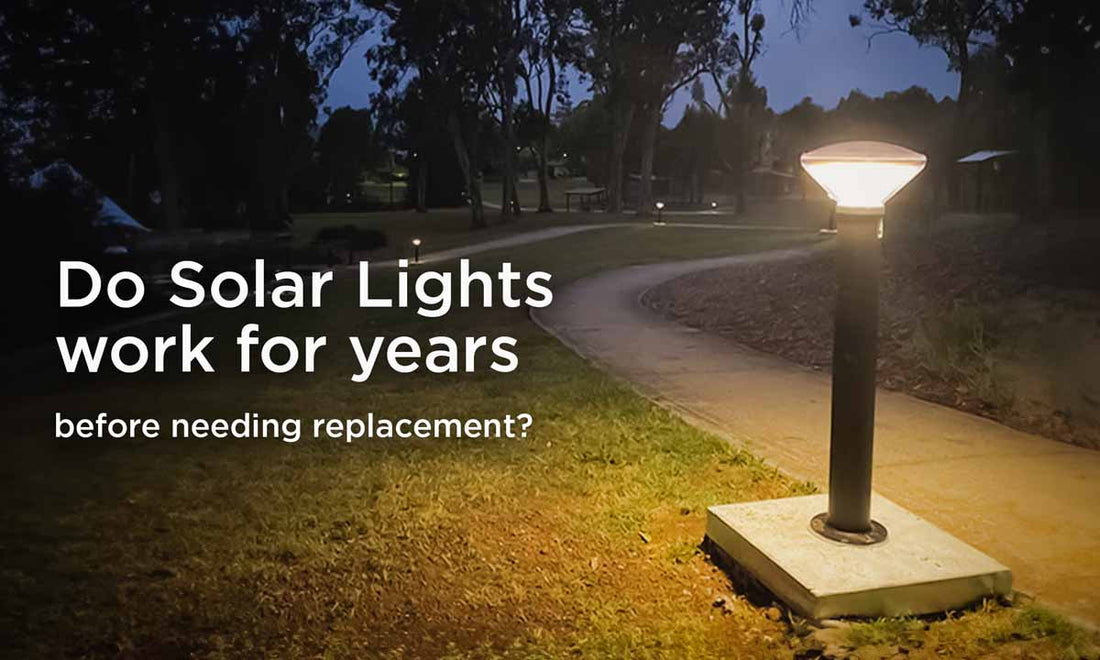
Do Solar Lights work for years before needing replacement?
Solar lights are known to save on power consumption and bills. That is why it would be preferable if they lasted for a long time, wouldn’t it? Fortunately, they do last a long time, but the question is how long? What should you do to make them last longer? Let’s find out!
How long do solar lights typically last?
The batteries of solar lights typically have a lifespan of up to four years, sometimes five years. They are cost-effective and easy to replace when it’s time for a replacement.
The LEDs in solar lights can last up to 10 years. One of the advantages of solar lighting is that you can leave the lights on throughout the night. However, the lights need to receive sufficient sunlight (roughly, eight hours a day).
How to make your solar lights last longer?
Consider these key suggestions to ensure that your solar lights see the light of day, every day.
- Determine Your Requirements: Not all solar lights are suitable for every home, so consider your needs and the size of the area you want to illuminate. Opt for a robust solar plan for larger gardens or spaces.
- Keep Panels Clean: Regularly clean the solar panels to maximize their efficiency. Dirt blocks sunlight and drains the battery faster. Wipe the panels at least twice a week to ensure bright and sparkling lights.
- Install in Sunlit Areas: Place solar panels in open areas where they can receive ample sunlight. Reposition lights or clear obstructing plants to ensure optimal exposure to sunlight. Protect your panels from harsh winters or storms. Remove batteries, wrap panels in paper, and keep them dry.
- Adjust Settings: Set the appropriate parameters for your solar lights. If the settings are not adjusted accurately, they can lead to high battery consumption or brightness.
- Turn Off in Heavy Rain: To preserve the battery life, switch off the lights on rainy days when charging efficiency is compromised.
- Choose Low-Watt Bulbs: Opt for bulbs with lower wattage to conserve energy and extend battery life.
- Avoid Artificial Light: Install solar lights away from artificial light sources to ensure the proper functioning of the light sensor and prevent damage to the sensors.
- Replace Drained Batteries: Dim or non-functioning lights may indicate drained or corroded batteries. Replace batteries promptly and get spare batteries when buying solar lights.
By following these tips, you can maximize the lifespan and efficiency of your solar lights.
